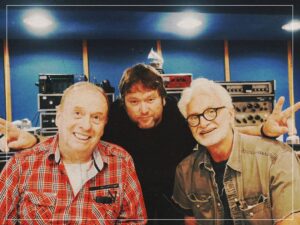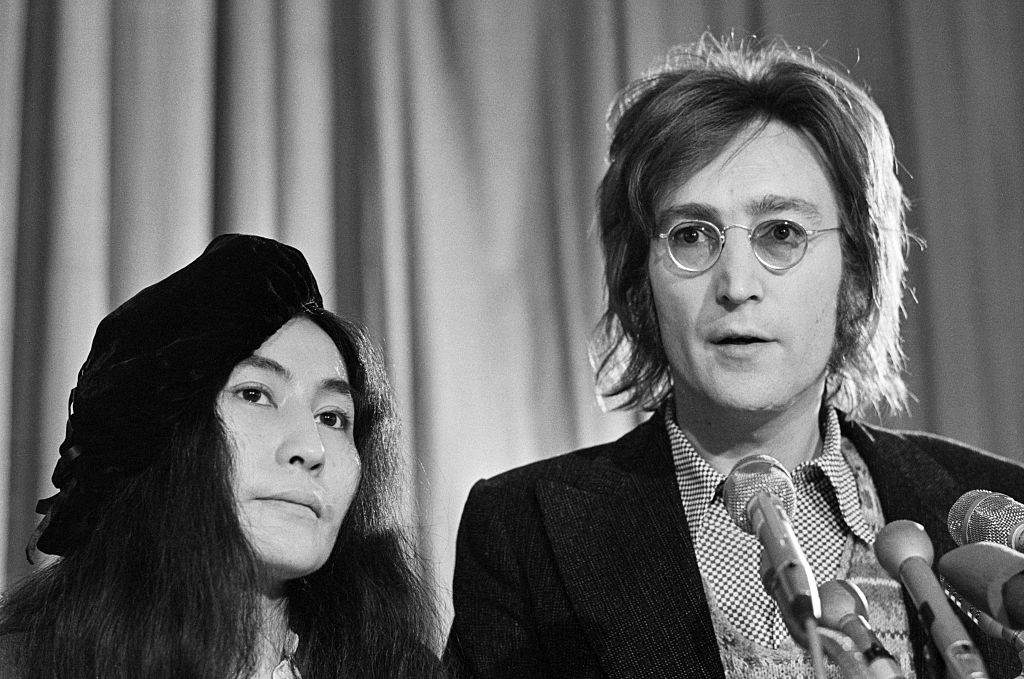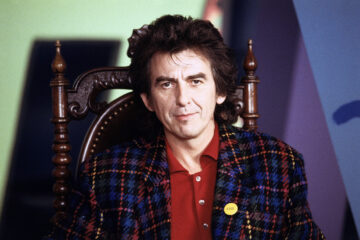On December 9th, 1980, an uneasy David Bowie stepped out onto the stage at New York’s Booth Theatre. He was midway through the venue’s run of The Elephant Man. It had been a wild success, but there were three empty seats in the front row that night. “I can’t tell you how difficult that was to go on,” Bowie later declared. “I almost didn’t make it through the performance.”
The night prior, John Lennon and Yoko Ono were returning to their Dakota Building apartment at around 10:30pm. A limousine dropped them off outside. They had just spent a tiring day at the studio. Keen to unwind, Yoko Ono quickly shuffled towards the lobby while Lennon collected cassettes of the day’s recordings and a few pieces of equipment.
As he walked towards the entrance, Mark David Chapman called out “Mr Lennon” and then fired four shots into his back. A fifth shot missed as Lennon began to slump to the ground. Later that same evening, Lennon was declared dead.
The empty seats on the front row of The Elephant Man the following evening belonged to Lennon, Yoko Ono and the murderer, Mark David Chapman. “I was second on his list,” Bowie later revealed. This torturing presentment of capricious fate was one of many harrowing what-ifs that would scar those caught up in the tumbling dominoes that cascaded after the cataclysm of Chapman’s crime.
Nobody was caught up in it more than Jack Douglas, the famed music producer who had been working with Lennon earlier that day. “We finished ‘Walking on Thin Ice’, and then he was assassinated,” he solemnly told Far Out. Douglas had helped to coax Lennon back into his creative stride when they were working together on Double Fantasy to such an extent that the former Beatle cancelled plans to recline in Bermuda that would’ve placed him safely out of the country. ”He didn’t want the creative flow to stop.” So, two months after wrapping the record hailed as his return to form, they were back in the studio.
In fact, they were in the studio together moments before “Mr Lennon” was fatefully uttered. “The thing that made it really hard on me is that we were neighbours,” Douglas explains. “We lived two blocks apart. I usually rode the limo home with John.” However, on that fateful night, he didn’t. “I had a young band that wanted to come in and work late that night. I always think that if I would have ridden home with him maybe I would have seen the guy, jumped on him or jumped in the way.”
This tragic line of thinking sent Douglas into a dark spiral. “I had years of regret, and that final take running through my mind over and over again. The only way to put that to sleep was to do some heroin. That would put me to sleep. It was horrible. Such a loss. We were such great friends,” he says. The impact that the world were facing was exacerbated with a personal weight and the horrid happenstance of circumstance for Douglas.
“I went into post-traumatic stress syndrome,” he sadly admits. “That lasted for years. I hid out, I did drugs, tonnes of heroin. I was pretty messed up from that whole thing.” Thankfully, he now reflects on the lasting work that they crafted as a sign that art endures and eventually subsumes tragedy, a fact that Lennon always lived by himself.
You can read out full interview with Jack Douglas here.




